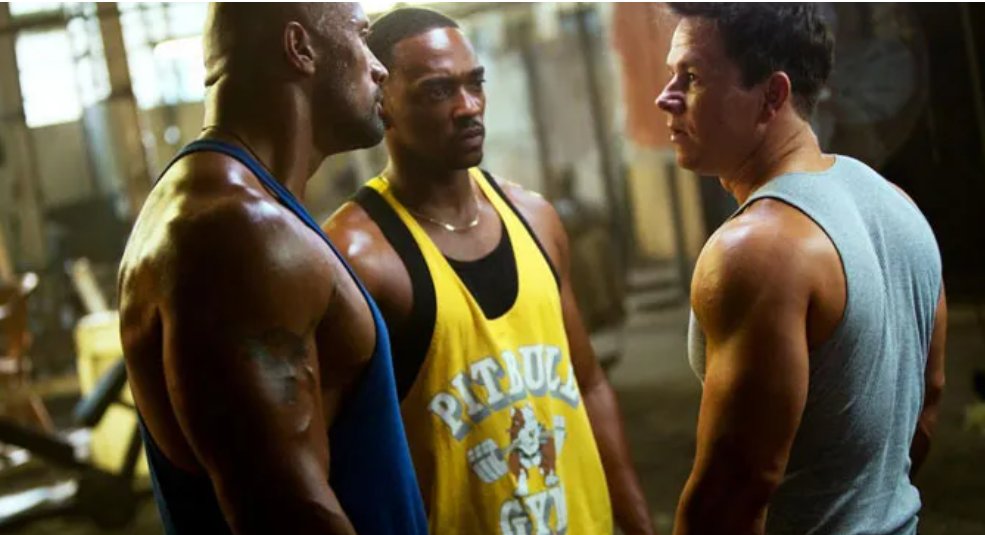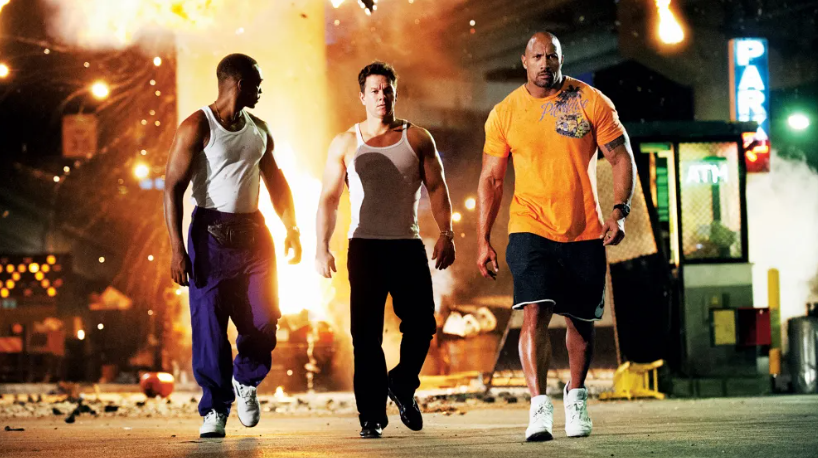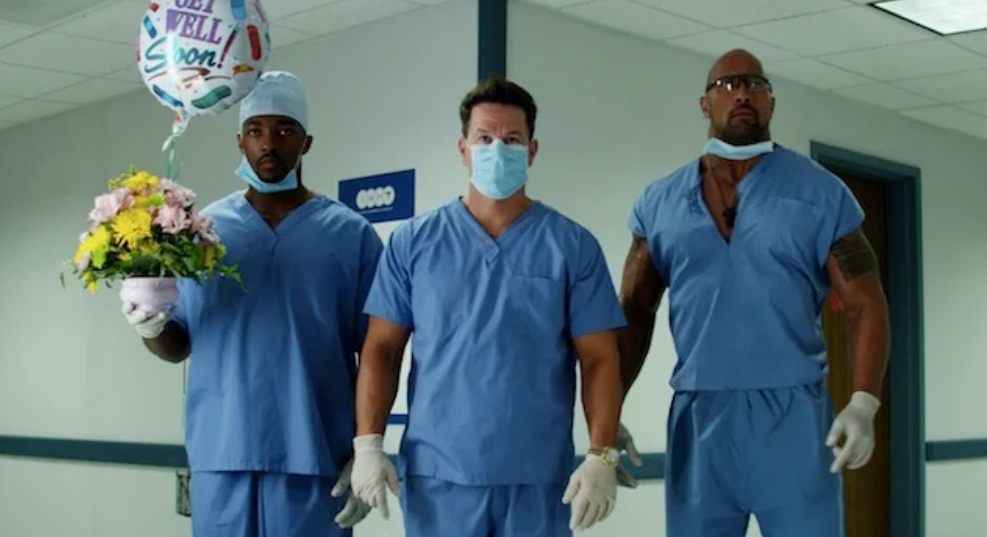Michael Bay’s 2013 action comedy film, based on true events and starring Mark Wahlberg and Dwayne Johnson, was all pain and no gain!

SUMMARY
Pain & Gain, an action comedy film helmed by Michael Bay, is based on the true story of the Sun Gym Gang in the 1990s.
The film’s plot follows three Miami bodybuilders, Mark Wahlberg, Dwayne Johnson, and Anthony Mackie, who plan to con a millionaire client, Victor Kershaw, out of his property and money.
Nonetheless, the film was criticized for being “dumb and shallow” and was embroiled in a legal battle with real-life victim Marc Schiller.
It is no secret that some movies have the power to stir up strong feelings and arguments in both critics and audiences. Pain & Gain, an action comedy film starring Mark Wahlberg, is one such flick that is based on actual events involving the infamous Sun Gym Gang.
Three Miami bodybuilders—played by Wahlberg, Dwayne Johnson, and Anthony Mackie—were the main focus of this 1990s true crime story.
Their plan to con a millionaire client named Victor Kershaw (Tony Shalhoub) out of his property and money swiftly spiralled out of control and resulted in murder, mayhem, and torture. Pete Collins’s articles about the Sun Gym gang that were first published in the Miami New Times served as the inspiration for Christopher Markus and Stephen McFeely’s script.
But it appears that the movie is all pain and no gain because, in addition to receiving harsh criticism for being “dumb and shallow”, it also got involved in a legal dispute with Marc Schiller, a real-life victim.

A Still from Pain and Gain
Pain & Gain: How Was Mark Wahlberg’s Film Received by Critics?
The majority of critics voiced their strong disapproval of Mark Wahlberg‘s Pain & Gain. Based on 204 reviews, Rotten Tomatoes gave the movie a 50% rating, with an average rating of 5.40/10. Critics dismissed it as another pointless “dumb” action flick. For those expecting the typical Hollywood blockbuster fare, the film’s historical inaccuracies and unorthodox narrative style seemed like an easy target.
Directed by Michael Bay, the film received a half-star rating out of four from Rolling Stone, which described it as “a Bay Botch job” and noted:
“[Michael Bay] once claimed he wanted to make a small, personal film that would reveal the real Bay. And I’m here to report that Pain and Gain is that film. It’s dumb, shallow, deeply cynical, and creatively bereft.”

Dwayne Johnson, Mark Wahlberg and Anthony Mackie in Pain & Gain
Although the film’s directing, violence, and historical inaccuracies drew criticism, its script and performances were praised. The movie made $86 million in total revenue worldwide, less than its $26 million budget.
Moreover, the movie was called “grotesquely inappropriate” and “every bit as pumped up and steroidal as the appalling characters it is attempting to portray” by British critic Mark Kermode (via YouTube).
The true plot of Pain & Gain was a disturbing one if seen through an artistic prism. Rich businessman Marc Schiller was kidnapped, tortured, and threatened with money demands by the Sun Gym Gang in the 1990s.
Not only did he escape unharmed, but he also played a key role in the gang members’ arrest. The movie’s foundation was this real-life experience, which gave it an eerie, dark, and disturbingly real feel.

Dwayne Johnson, Mark Wahlberg and Anthony Mackie in Pain & Gain
Mark Wahlberg’s Pain & Gain Was Sued By a Real-Life Victim?
Marc Schiller, whose terrible kidnapping story served as the inspiration for Mark Wahlberg’s 2013 dark comedy hit Pain & Gain, claimed he was wrongly portrayed in the film as a dishonest, “unlikeable, sleazy” braggart when in reality he was just the victim. He said in an interview with the New York Post:
“They chose to portray me as a bad person and my assailants as nice guys who were just bumbling fools. The movie made a mockery of me and of the pain and suffering that I had endured. The horrible person on the screen had no resemblance to who I was—o who I am now.”
Schiller said that by fabricating the truth about his 1994 ordeal at the hands of the Sun Gym Gang, Wahlberg, Paramount Pictures, its parent company Viacom, and others illegally profited.

Dwayne Johnson, Mark Wahlberg and Anthony Mackie in Pain & Gain
Schiller’s lawyer, Holly Ostrov-Ronai, argued that renaming his character would not protect the “family man” from being shown in the film as a recovering alcoholic. She said that since the film presented itself as a “true story”, anyone could infer that Schiller’s portrayal was accurate.
The lawsuit was aimed at Paramount Pictures, Wahlberg, and other production companies for unspecified damages.
Though Wahlberg committed his heart and soul to the movie, it created a negative image in front of the viewers. Perhaps if the makers had been more careful in their views about the victim and took care of their sentiments, the movie might’ve become one of the classic hits of today.
News
Megan Fox Turned Down a Mammoth $17 Million Paycheck Due to Her Intense Hatred for Angelina Jolie Comparisons
Some actors like being compared to the veterans but some absolutely hate it. The latter was true for Megan Fox and Angelina Jolie for which the former…
Sylvester Stallone Exiting $789M Franchise, Letting Fast X Star Take Over after Megan Fox’s Debut? $400M Rich Star Says “Jason Statham is 80% of it”
For the most part of his career, Sylvester Stallone’s name has been attached to several franchises but it seems the actor is finally shifting away from his…
EXCLUSIVE – Machine Gun Kelly got SHOCKING blackout tattoo to prove to Megan Fox that he is 100% committed to their relationship – as insiders reveal what actress REALLY thinks about the dramatic new ink
Machine Gun Kelly’s shocking new body art is an attempt to show his girlfriend, Megan Fox, that he ‘can change for the benefit of their relationship,’ insiders have…
Megan Fox’s boyfriend Machine Gun Kelly revealed a shocking new black tattoo that required 44 needles, but what stunned fans was the sensitive image he just shared
Machine Gun Kelly has debuted his new ink on social media. The singer is known to be covered almost top-to-toe in tattoos, but has now covered many of…
Machine Gun Kelly shares heartbreaking message addressing Megan Fox’s miscarriage
Machine Gun Kelly has shared some deeply personal thoughts about his partner Megan Fox’s miscarriage in a new song. The singer grapples with the loss of his…
Controversy Erupts: Charlize Theron Faces Backlash for Comments on Afrikaans Language, Fans Defend Cultural Heritage
Charlize Theron, a renowned South African actress, recently stirred controversy with her remarks about Afrikaans, the language spoken by many in South Africa. During a media interview,…
End of content
No more pages to load










